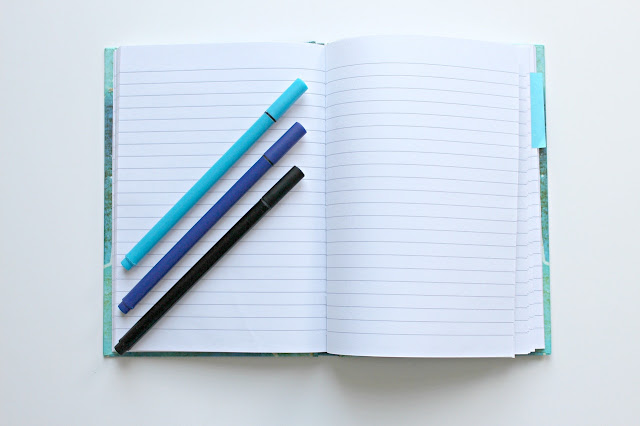Most students like to work early in the morning, but they can't study as efficiently as they expect because they don't know how to manage their time properly. If we can study with a well-planned timetable for studying in the morning, we can work productively by doing things at the right time. That is why I planned this article with my friends who study early in the morning.
If you have any interest in studying at night or want to try night study, you can read my previous article on a productive night study routine with a timetable.
If you want to study for long hours effectively, the best time of the day to start studying is early in the morning. And also, the way you begin studying in the morning affects your whole day. Because if you start the day in a lazy mood, the entire day will become boring. But if you can give your studies a fresh start in the morning, you can work with good motivation throughout the day. So read this article and get a better idea to plan your morning routine well.
How to create a morning study routine
I made this morning study routine with my friends, who have been studying early in the morning for a long time. I gathered information from everyone and made this schedule fit anyone reading this article. Most of my friends wake up between 3 and 5 in the morning, so I suggest you wake up at 4 in the morning. If you want to wake up at any other time, you can adjust this time according to your preferences.
Since this is a morning study routine, I'm only talking about a time between 4 am and 12 pm. But if you want another study routine, you can make your own by following this article. I suggest you start with the timetable below and modify it with your experience.
| Time | Work |
|---|---|
| 4.00 am - 4.30 am | Getup and plan the day |
| 4.30 am - 5.00 am | Review notes |
| 5.00 am - 5.55 am | Start working |
| 5.55 am - 6.00 am | Short break |
| 6.00 am - 7.00 am | Make notes |
| 7.00 am - 8.00 am | Breakfast and a short break |
| 8.00 am - 9.50 am | Self-studying |
| 9.50 am - 10.00 am | Short break |
| 10.00 am - 12.00 pm | Do papers |
1. Getup and plan the day
Getting up at 4 am in the morning and starting to study is challenging because after waking up, we feel sleepy. And also, waking up early in the morning is a good skill that requires much energy and motivation. So as soon as you wake up, it's not effective to study with sleepiness. So as soon as you wake up, you should wash your face and refresh yourself. I don't think brushing your teeth at this time is good because it may take a long time. So instead of wasting your precious time, you can brush your teeth at breakfast time.
Then you can make tea or coffee and start planning your day while drinking it. You have to make a clear plan by deciding what subjects you want to study today, what papers you are going to do, and what you will do in each time slot in your timetable.
2. Review notes
Before we start the day, we should recall the facts we have learned so far, and the best thing you can do about this is to look at the study notes you have created previously. As I always say, making notes is the best way to recall anything fast and efficiently. To get better results, you should make them in your own words and as short as possible. Instead of copying the original content, you can use symbols, mnemonics, etc., to simplify any lesson. Then you can easily recall the entire lesson quickly just by looking at the note.
If you're studying one subject per day, it's better to refer to the facts related to that subject, as when you're answering questions, you have better knowledge to answer them. Plus, your brain will store that information in your long-term memory as you get in touch with them repeatedly.
3. Start working
Now you are ready to start working. Since it's early in the morning, if you choose a boring and complicated subject to study at the beginning, your entire schedule can get messed up. So, in this case, we have to think wisely and choose subjects that can motivate us to study continuously for the rest of the day.
That's why I'd like to recommend your favorite subject for the start of the day, or it's much better if you can study a logical or mathematical subject like math or physics. When working with a subject like mathematics, you have to brainstorm to solve problems. So it hopefully helps you decrease morning laziness by getting you in the learning mood. Similarly, studying your favorite subject makes you more interested in studying, so you won't feel bored anymore.
As we have chosen a topic to start our day, next, we need to update our knowledge by answering questions related to that topic with the help of theories. You can use workbooks, question books, or papers to do this.
Here, you don't need to write the answers in the book. If you can conclude the solution in your mind, there's not much need to write it as you have the whole idea to solve that problem. Also, it saves you a lot of time as you can answer multiple questions in a short period of time. If you get stuck in the middle of a problem, you can write it down in the book by looking at your notes.
We can use this method to answer the theoretical questions as it can help you to memorize those facts easily and save them in your long-term memory.
4. Make notes
When you study in the previous period, you may be able to realize which parts of the lesson you have not understood well. With that, you should get an idea about the lessons you need to learn more by making notes and other learning materials. Also, if you discover new facts in lessons that you know well, you should try to refresh your memory by recalling them.
As you are in a good mood in the morning, your creative thinking ability is high at the start of the day. So, as I mentioned earlier in the article on how to make any boring subject interesting, You can use this time to make some creative mnemonics, jokes for lessons, charts, and infographics to memorize everything in a fun way.
5. Breakfast and a short break
It's time to take a break as you studied for nearly 3 hours; of course, it's time for breakfast. If you neglect your breakfast, you won't get much energy to keep up with your schedule, and you may also have health problems.
We cannot study the next moment after eating as it is difficult to concentrate on our studies. Also, as you've studied for a long time, your mind should need to rest to organize the things you have learned. So you can use this time to do your favorite hobby. For example, you can read a book, watch an episode of your favorite TV series, or chat with your friends. But don't last this free time for more than 30 minutes.
6. Self-studying
As we have had breakfast and rested, we can start a new task in our timetable. I suggest that it is better to read and study lessons using different methods during this time slot.
You can read your teacher's notes, your notes, textbooks, and additional reading materials, search for information, and watch videos related to your lesson on the Internet. At this time, you should try to fully understand the lessons you studied at school by trying different study techniques.
We can use different types of memorization techniques to memorize and understand everything we learn during this time. For example, this is the best time to study using the teaching to an imaginary person technique. In this technique, You have to think that you are a teacher and teach the things you have learned to an imaginary person in your room.
7. Do papers
Now that you have studied for almost 5 hours, you have added a lot of knowledge to your memory. Now it's the best time to check the accumulated knowledge, so let's do some papers to find out how efficiently you studied and what you need to memorize further.
In high school, I had a question book that categorized questions for each lesson. So after studying each lesson, I answer some questions from that book to check my knowledge. And if you can find papers from previous exams, it's much better to do them because then you can understand the pattern of questions at the exam.
Doing papers is the best way to check our knowledge and understanding of a topic and is the best way to memorize facts in a good structure. And we can also understand what questions may come in our exam and learn things by focusing on those questions.
Doing papers is like a cricketer practicing batting for different balls and bowlers. When he has practice hitting different types of balls, he becomes a good cricketer and can hit any ball successfully with his experience. As a student, we can practice answering papers at home. Then in the exam, it will be easier to answer any problem with our experience with questions. So I suggest you do as much paper as you can.
Conclusion
I think now you have an idea of how you can make your morning study routine. Now all you have to do tomorrow is get up early in the morning and study the way I told you in this article. If you can't get up early in the morning, you can try studying at night. I have written an article on how to pull an all-nighter, so if you want to study all night, you can get tips and tricks from that article to study all night. If you are an early bird, you can share your study schedule with us as a comment because it will help others to get more ideas to make their morning study schedule. And don't forget to share this article with your friends.



.jpg)

.png)
0 Comments